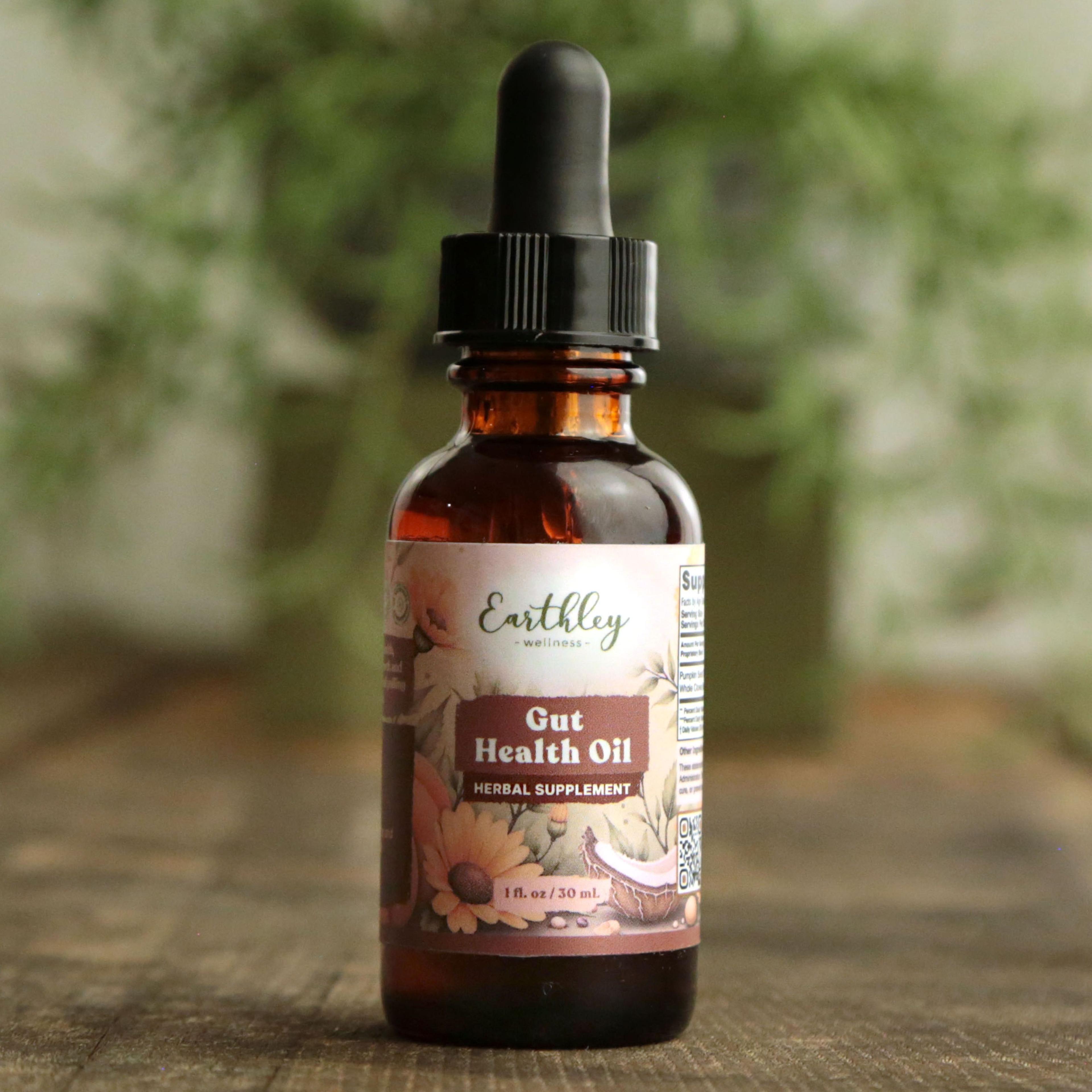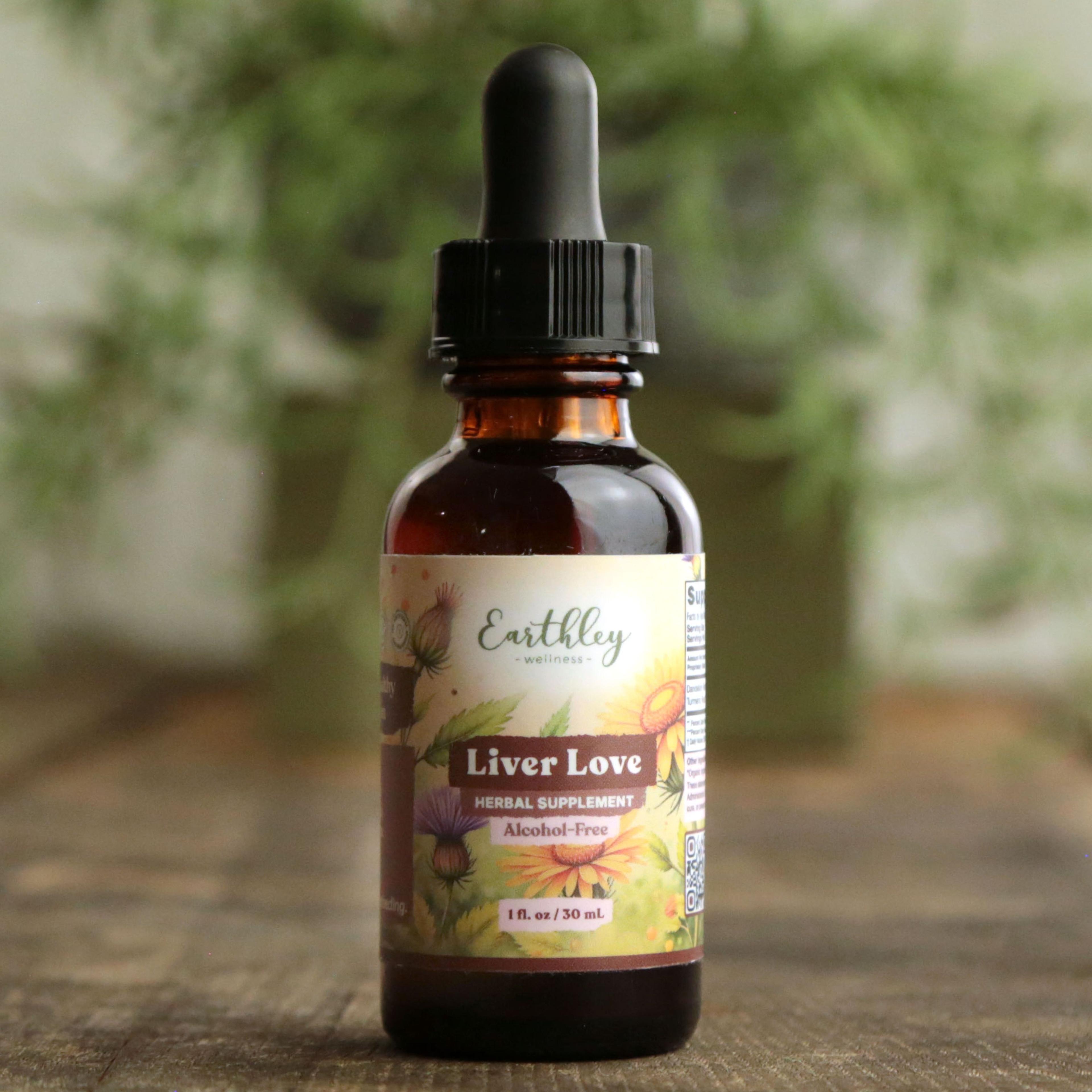Methylation: The Missing Link in Your Energy, Mood, and Detox

Do you ever feel like you’re doing everything right, eating clean, taking your vitamins, getting sleep, but still running on low energy or battling brain fog, mood swings, or sluggish detox? Maybe you’ve tried every wellness hack and still can’t figure out why your body feels off. It’s frustrating when your efforts don’t seem to match your results. But sometimes, the issue isn’t what you’re doing, it’s what your body can’t quite do efficiently behind the scenes.
Methylation might be a missing piece behind all those “mystery” symptoms.
This little-known biochemical process powers everything from your energy production to your stress response, mood balance, and detox pathways. When methylation isn’t working as it should, it can ripple through every system in your body.
We’ll break down what methylation is, what disrupts it, how to recognize when yours might be struggling, and gentle, natural ways to get it back on track - so your body (and mind) can finally feel like they’re running in sync.
What is Methylation and Why Does it Matter?
Methylation refers to a complex biochemical process in the body that adds a carbon group (methyl) to DNA, RNA, proteins, fats, and neurotransmitters to turn them on or off[1]. It’s like a multi-layered, heavily supported baton race. An inability to pass on or accept the baton (aka methyl group) in any part of the cycle can lead to a breakdown in the others[2].
The main runners in the cycle are homocysteine, methionine, SAM, and 5-MTHF[1]. TMG takes the place of 5-MTHF in the liver and the kidneys[3]. They are assisted by several genes (e.g. MTHFR, MTR, CBS), enzymes (e.g. MAT, DNMT), and cofactors (e.g. vitamins and minerals) to ensure the baton can be given to the next runner or ultimately to the appropriate molecule[4].
In simpler terms, each runner needs a helper, or more, to run the race to the best of their ability. When these helpers don’t show up, the runner ends up missing the handoff, which slows the race.
The spot on handoff of this baton is critical because it:
- Regulates which genes are expressed or not (epigenetics)[1]
- Supports heart and circulation health—preventing heart attacks and stroke[5]
- Supports healthy neurological functions—creation of serotonin and dopamine[5]
- Aids in the prevention of cancer[6]
- Regulates immunity—especially in cases of autoimmunity[7]
- Supports healthy metabolism and detoxification[8]
Our diet, stress level, age, and gene alterations in MTHFR, MTR, and CBS influence how well our body can run these innumerable baton races[9]. Let’s take a look at how a disruption in our diet, genes, and overall lifestyle habits leaves an impact on the methylation process.
Methylation Disruptors
So many factors play into the disruption of our methylation cycles. Probably more than we’re aware of. For now, let’s talk about the ones we do know about.
Key Nutrient Deficiencies[10]:
- Folate (5-MTHF) is essential for the body to turn homocysteine into methionine.
- B12 (methylcobalamin) helps folate recycle homocysteine back into methionine.
- B6 (pyridoxine) supports the enzymes needed for the transfer of sulfur and metabolism of homocysteine.
- Choline is converted into betaine (TMG) in the liver.
- Betaine (trimethylglycine) uses BHMT enzyme to donate a methyl to homocysteine and acts as an alternative methyl donor when folate is limited.
- Methionine is an essential amino acid that pairs with ATP to form SAM. It is the primary methyl donor in over 200 methylation reactions.
- Magnesium is a cofactor for the enzymes involved in methylation.
- Zinc supports DNA methylation and regulates methyltransferase (MAT) activity.
- B2 (riboflavin) supports MTHFR enzyme function, which is critical for folate activation.
Processed Foods have introduced synthetic additives instead of the ones found naturally in unprocessed foods. Additionally, many essential nutrients are lost in the process and not replaced. One such additive is synthetic folic acid, which can inhibit MTHFR enzyme and block natural folate absorption[11].
The high amounts of sugar and unhealthy fats create metabolic stress, which is linked to altered DNA methylation[12]. When our DNA gets altered, it affects our ability to respond to stress as well as neurodevelopment. They also promote inflammation and gut dysbiosis, adding another layer of stress to our detox and methylation pathways.
Chronic stress alters DNA methylation patterns[13]. On one hand, it causes hypermethylation of the glucocorticoid receptor, reducing its expression and impairing the body’s ability to regulate cortisol. On the other, it causes hypomethylation of our stress-related genes, which increases their activity and amplifies our stress response.
If this continues on long enough, our stress levels start to affect the genes involved in neurotransmission (serotonin transport) and neuroplasticity, contributing to anxiety, depression, and cognitive dysfunction. These altered genes can then be passed on to our children[13].
Toxins coming from heavy metals, oxidative stress, and other carcinogenic substances affect the methylation cycle in at least six ways[14][15].
First, heavy metals, like arsenic and cadmium, and pollutants consume glutathione, diverting homocysteine away from methionine and SAM synthesis.
Second, lead, mercury, and polycyclic aromatic hydrocarbons (PAHs) directly reduce DNMT activity, causing hypomethylation.
Third, chronic cadmium exposure can increase DNMT expression, leading to hypermethylation and gene silencing.
Fourth, oxidative stress from toxins, increase TET enzymes, promoting active DNA demethylation.
Fifth, nickle and methylmercury induce repressive histone markers linked to hypermethylation. Lead promotes histone activating markers linked to hypomethylation.
Sixth, toxins switch on latent genes which activate silent genes, triggering the appearance of cancer, autoimmune diseases, or neurodegeneration.
Insufficient Sleep leads to hypomethylation of DNA. This is particularly true for genes involved in nervous system development and circadian rhythm regulation. Insomnia alone leads to a 76-78% loss of methylation, potentially altering gene expression related to neuroplasticity, neurodegeneration, and metabolic health. Even a single night of missed sleep can disrupt methylation patterns in core circadian clock genes (CLOCK, BMAL1)[16].
Medications such as birth control pills, proton pump inhibitors (PPIs), anticonvulsants, metformin, and methotrexate deplete folate or interfere with the methylation enzymes. Some antibiotics contribute to functional folate deficiency, because they wipe out bacterial folate, which is included in total folate measurements[17].
Alcohol and smoking impair liver function and deplete B vitamins, disrupting methylation and detoxification[18].
Poor gut health caused by dysbiosis alters the creation of short chain fatty acids needed to inhibit DNMT, which influences histone and DNA methylation. Our gut bacteria are responsible for the conversion of folate and B12. Without these two cofactors, homocysteine is not able to be converted into methionine[19].
Another set of bacteria converts choline into trimethylamine (TMA), reducing the amount of choline available to be converted into TMG, which also inhibits the conversion of homocysteine into methionine[19].
Low stomach acid impairs the conversion and acceptance of B12. Leaky gut promotes inflammation, increasing the levels of homocysteine and disrupting methylation balance[19].
MTHFR polymorphisms C677T and A1298C interfere with the body’s ability to convert folic acid and folinic acid (partially converted folic acid) fully into folate. One or both of these polymorphisms can be present. Either can cause a disruption in folate conversion and can interfere with several metabolic pathways outside of the methylation process[20].
Beyond MTFHR polymorphisms, there may be mutations in the MTR, MTRR, COMT, and CBS genes that affect efficiency.
Methonine Synthase (MTR) remethylates homocysteine to methionine using B12 and folate as cofactors. It is essential for protein creation and the formation of SAM[21].
Methionine Synthase Reductase (MTRR) regenerates the active form of B12 and MTR. When it is broken, it leads to an increase in homocysteine[22].
Catechol-o-methyl transferase (COMT) breaks down neurotransmitters like dopamine, epinephrine, and norepinephrine by transferring a methyl group from SAM. When it doesn’t work properly, it can affect mood, stress response, and cognitive function, influencing how the rest of the body uses methyl donors[23].
Cystathionine Betasynthase (CBS) is an enzyme that plays a key role in a methylation cycle known as the Transsulfuration Pathway, converting homocysteine into cysteine, which is a precursor for the antioxidant Glutathione and hydrogen sulfide[24].
Mutations in this enzyme cause homocystinuria—an inherited disorder leading to elevated levels of both homocysteine and methionine—and increases the risk of blood clots, skeletal abnormalities, eye problems, and intellectual disability[24].
If the mutation is pyridoxine-responsive, this condition can be improved with vitamin B6 supplementation[24].
Frequent use of marijuana that has a THC level greater than or equal to 10% causes epigenetic changes to the DNA’s methylation patterns[25].
Signs Your Methylation Might Need Support
Because everything in the body is interrelated, it is often difficult to tell which issue our symptoms are pointing us towards. However, since methylation plays a role in almost every system in the body[26][27][28], doing what you can to support this process may in turn improve other areas of your life. Below is a list of physical and emotional signs that your methylation processes may need some support.
Physical signs[29]:
- Chronic fatigue or low energy
- Headaches or migraines
- Muscle pain and weakness
- Allergies, asthma, eczema, or hives
- Digestive issues (IBS or Food Sensitivities)
- Elevated liver enzymes [blood test required]
- High homocysteine levels [blood test required]
- Recurring miscarriages or fertility issues
- Neurological symptoms (dizziness, brain fog, etc)
- Impaired detoxification
- Inflammation
- Nutrient imbalances linked to methyl dysfunction [blood/genetic test required]
Emotional signs:
- Depression and/or anxiety
- Mood swings and irritability
- Obsessive-compulsive tendencies or ritualistic behaviors
- Inner tension or perpetual stress
- Low motivation or emotional numbness
- Phobias or excessive worry
- Poor stress tolerance
The emotional signs may indicate that neurotransmitter synthesis has been disrupted, or that there is altered gene regulation in the mood-related pathways[30].
How to Support Healthy Methylation
Now that we’ve crossed the finish line of this massive baton race, perhaps a little winded or bruised from the disruptions along the way, it’s natural to ask: how can we make the next lap a little smoother?
First, take a deep breath. There’s no need to sprint into a complete overhaul. Small, consistent actions almost always outpace big, unsustainable changes. The key is to focus on one area at a time, letting each shift build on the last.
Below are a few gentle lifestyle changes to consider—each one aimed at nourishing the core systems that support healthy methylation. These are general wellness suggestions and not intended to diagnose, treat, or cure any condition. As always, it’s wise to check in with a trusted healthcare provider if you have specific concerns or before introducing new supplements.
Step 1: Start the Day with Calm + Core Nutrients
A grounded morning can help set the tone for a more balanced day, even if it’s just a few deep breaths before things get going.
Suggested support:
- Calm & Clarity to support emotional balance and focus
- Nourish Her or Nourish Him for foundational vitamins and minerals that support stress resilience and energy
Lifestyle pairing:
Try stepping outside for a few minutes of morning sunlight and taking a few slow breaths. These small actions help reset your nervous system and support natural energy rhythms.
Step 2: Strengthen Digestion and Gut Health
Supporting healthy digestion may help your body get the most out of the nutrients you eat
Suggested support:
- Digest Support before meals to promote smoother digestion
- Gut Health Oil for microbiome and gut lining support
Lifestyle pairing:
Slow down when you eat, chew thoroughly, and include fiber-rich, colorful foods when you can. Fermented foods like yogurt, sauerkraut, or kefir can also help nourish the gut naturally.
Step 3: Gently Support Detox Pathways
Gentle habits that support the body’s natural detox processes can help you feel lighter and more energized.
Suggested support:
- Liver Love for gentle liver support
- Bamboo Body Brush to encourage lymphatic flow
Lifestyle pairing:
Try dry brushing before your shower a few times per week, or start the day with warm lemon water. Reducing alcohol, processed foods, and synthetic fragrances can also ease the liver’s load.
Step 4: Fuel Energy + Immune Function with Nutrient Density
Eating a nutrient-rich diet can help support your body’s natural energy levels and overall wellness.
Suggested support:
- Vitality Oil, Superfood Powder, or Greens Powder to provide antioxidant-rich, energy-supportive nutrients
- Immune Support Bundle for added defense during high-stress or seasonal shifts
Lifestyle pairing:
Aim for balanced meals with protein, healthy fats, and colorful produce. Drink plenty of filtered water, and move your body daily—even if it’s just a walk or light stretching.
Step 5: Prioritize Rest + Restore Overnight
Prioritizing quality sleep is important for overall health and wellness, helping your body reset and restore each night.
Suggested support:
Magnesium Lotion (topical magnesium) to promote muscle relaxation and deeper rest
Sleepy Time to encourage calm at bedtime
Lifestyle pairing:
Wind down electronics at least 30 minutes before bed, and try to keep a consistent sleep routine. Even 10 minutes of quiet, low-light wind-down time can make a difference.
Step 6: Keep It Simple and Consistent
You don’t have to do everything at once. Pick one area that feels like the biggest need, whether it’s mood, energy, digestion, or sleep, and focus there. The rest can build over time.
Methylation touches nearly every aspect of how you feel, from your energy and focus to your mood and how well your body detoxes. When this process runs smoothly, everything else feels more in sync. When it’s off, even small stressors can feel overwhelming.
The good news is that supporting methylation doesn’t require drastic measures, just mindful, consistent care for your body’s natural systems. By nourishing your gut, reducing toxins, balancing nutrients, and prioritizing rest, you can help your body do what it’s designed to do: restore, protect, and thrive.
Remember, wellness isn’t about perfection. It’s about giving your body the steady support it needs to find balance again, one gentle shift at a time.
Check out these products!

Promotes balanced mood and focused attention

Whole, natural nutrition for HER

Bitters to promote healthy digestion

Supports digestive health and helps maintain a balanced microbial environment. Supports oral hygiene.

To support healthy liver function

Natural exfoliation for radiant skin (gentle for all skin types)

For healthy sleep and magnesium (NEW! Moonlight Bloom scent)

To promote calm mood and restful sleep
References:
[1] Menezo, Y., Clement, P., Clement, A., & Elder, K. (2020). Methylation: An Ineluctable Biochemical and Physiological Process Essential to the Transmission of Life. International journal of molecular sciences, 21(23), 9311. https://doi.org/10.3390/ijms21239311
[2] Ho, V., Massey, T.E. & King, W.D. Effects of methionine synthase and methylenetetrahydrofolate reductase gene polymorphisms on markers of one-carbon metabolism. Genes Nutr 8, 571–580 (2013). https://doi.org/10.1007/s12263-013-0358-2
[3] Zhao, G., He, F., Wu, C., Li, P., Li, N., Deng, J., Zhu, G., Ren, W., & Peng, Y. (2018). Betaine in Inflammation: Mechanistic Aspects and Applications. Frontiers in immunology, 9, 1070. https://doi.org/10.3389/fimmu.2018.01070
[4] Genova Diagnostics. (n.d.). Methylation support guide [PDF]. Genova Diagnostics. https://www.gdx.net/core/support-guides/methylation-support-guide.pdf
[5] Brosnan, J. T., Jacobs, R. L., Stead, L. M., & Brosnan, M. E. (2004). Methylation demand: a key determinant of homocysteine metabolism. Acta biochimica Polonica, 51(2), 405–413.
[6] Bhootra, S., Jill, N., Shanmugam, G. et al. DNA methylation and cancer: transcriptional regulation, prognostic, and therapeutic perspective. Med Oncol 40, 71 (2023). https://doi.org/10.1007/s12032-022-01943-1
[7] Calle-Fabregat, C., Morante-Palacios, O., & Ballestar, E. (2020). Understanding the Relevance of DNA Methylation Changes in Immune Differentiation and Disease. Genes, 11(1), 110. https://doi.org/10.3390/genes11010110
[8] Aronica, L., Ordovas, J. M., Volkov, A., Lamb, J. J., Stone, P. M., Minich, D., Leary, M., Class, M., Metti, D., Larson, I. A., Contractor, N., Eck, B., & Bland, J. S. (2022). Genetic Biomarkers of Metabolic Detoxification for Personalized Lifestyle Medicine. Nutrients, 14(4), 768. https://doi.org/10.3390/nu14040768
[9] Klemp, I., Hoffmann, A., Müller, L., Hagemann, T., Horn, K., Rohde-Zimmermann, K., Tönjes, A., Thiery, J., Löffler, M., Burkhardt, R., Böttcher, Y., Stumvoll, M., Blüher, M., Krohn, K., Scholz, M., Baber, R., Franks, P. W., Kovacs, P., & Keller, M. (2022). DNA methylation patterns reflect individual's lifestyle independent of obesity. Clinical and translational medicine, 12(6), e851. https://doi.org/10.1002/ctm2.851
[10] AthensLab. (n.d.). Methylation cofactors – DetoxScan®. AthensLab. https://athenslab.gr/en/exetaseis-prolipsis/detoxscan-elegxos-oxeidotikou-stres/methylation-cofactors-1910
[11] Partridge, D. (2019). Food additives: Assessing the impact of exposure to emulsifiers and other additives on intestinal and metabolic health. Nutrition Bulletin, 44(4), 368–375. https://doi.org/10.1111/nbu.12408
[12] Maugeri, A., & Barchitta, M. (2020). How Dietary Factors Affect DNA Methylation: Lesson from Epidemiological Studies. Medicina (Kaunas, Lithuania), 56(8), 374. https://doi.org/10.3390/medicina56080374
[13] Matosin, N., Cruceanu, C., & Binder, E. B. (2017). Preclinical and Clinical Evidence of DNA Methylation Changes in Response to Trauma and Chronic Stress. Chronic stress (Thousand Oaks, Calif.), 1, 2470547017710764. https://doi.org/10.1177/2470547017710764
[14] Elkin, E. R., Higgins, C., Aung, M. T., & Bakulski, K. M. (2022). Metals Exposures and DNA Methylation: Current Evidence and Future Directions. Current environmental health reports, 9(4), 673–696. https://doi.org/10.1007/s40572-022-00382-4
[15] Ryu, H. W., Lee, D. H., Won, H. R., Kim, K. H., Seong, Y. J., & Kwon, S. H. (2015). Influence of toxicologically relevant metals on human epigenetic regulation. Toxicological research, 31(1), 1–9. https://doi.org/10.5487/TR.2015.31.1.001
[16] Lahtinen, A., Puttonen, S., Vanttola, P., Viitasalo, K., Sulkava, S., Pervjakova, N., Joensuu, A., Salo, P., Toivola, A., Härmä, M., Milani, L., Perola, M., & Paunio, T. (2019). A distinctive DNA methylation pattern in insufficient sleep. Scientific reports, 9(1), 1193. https://doi.org/10.1038/s41598-018-38009-0
[17] Lambie, D.G., Johnson, R.H. Drugs and Folate Metabolism. Drugs 30, 145–155 (1985). https://doi.org/10.2165/00003495-198530020-00003
[18] Lieber C. S. (2003). Relationships between nutrition, alcohol use, and liver disease. Alcohol research & health : the journal of the National Institute on Alcohol Abuse and Alcoholism, 27(3), 220–231.
[19] Bacaloni, S., & Agrawal, D. K. (2025). Nutrition, Gut Microbiota, and Epigenetics in the Modulation of Immune Response and Metabolic Health. Cardiology and cardiovascular medicine, 9(3), 111–124.
[20] Liew, S. C., & Gupta, E. D. (2015). Methylenetetrahydrofolate reductase (MTHFR) C677T polymorphism: epidemiology, metabolism and the associated diseases. European journal of medical genetics, 58(1), 1–10. https://doi.org/10.1016/j.ejmg.2014.10.004
[21] Ma, L. M., Yang, H. P., Yang, X. W., & Ruan, L. H. (2019). Methionine synthase A2756G polymorphism influences pediatric acute lymphoblastic leukemia risk: a meta-analysis. Bioscience reports, 39(1), BSR20181770. https://doi.org/10.1042/BSR20181770
[22] Wang, P., Li, S., Wang, M., He, J., & Xi, S. (2017). Association of MTRR A66G polymorphism with cancer susceptibility: Evidence from 85 studies. Journal of Cancer, 8(2), 266–277. https://doi.org/10.7150/jca.17379
[23] Ashton, K.A., Meldrum, C.J., McPhillips, M.L. et al. The Association of the COMT V158M Polymorphism with Endometrial/Ovarian Cancer in HNPCC Families Adhering to the Amsterdam Criteria. Hered Cancer Clin Pract 4, 94 (2006). https://doi.org/10.1186/1897-4287-4-2-94
[24] Gong, B., Liu, L., Li, Z. et al. Novel Compound Heterozygous CBS Mutations Cause Homocystinuria in a Han Chinese Family. Sci Rep 5, 17947 (2015). https://doi.org/10.1038/srep17947
[25] Szutorisz, H., & Hurd, Y. L. (2016). Epigenetic Effects of Cannabis Exposure. Biological psychiatry, 79(7), 586–594. https://doi.org/10.1016/j.biopsych.2015.09.014
[26] Jin, Z., & Liu, Y. (2018). DNA methylation in human diseases. Genes & diseases, 5(1), 1–8. https://doi.org/10.1016/j.gendis.2018.01.002
[27] Stylianou E. (2018). Epigenetics of chronic inflammatory diseases. Journal of inflammation research, 12, 1–14. https://doi.org/10.2147/JIR.S129027
[28] Wielscher, M., Mandaviya, P.R., Kuehnel, B. et al. DNA methylation signature of chronic low-grade inflammation and its role in cardio-respiratory diseases. Nat Commun 13, 2408 (2022). https://doi.org/10.1038/s41467-022-29792-6
[29] BioCare. (2018, March 21). 10 signs you need methylation support. BioCare. https://www.biocare.co.uk/news/10-signs-you-need-methylation-support.html
[30] Li, M., D'Arcy, C., Li, X., Zhang, T., Joober, R., & Meng, X. (2019). What do DNA methylation studies tell us about depression? A systematic review. Translational psychiatry, 9(1), 68. https://doi.org/10.1038/s41398-019-0412-y